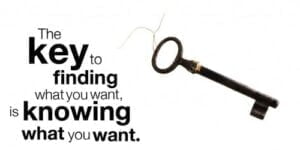Many things stay the same in sports media. Especially when it involves a brand’s weekday lineup.
If you look around the sports radio format today, you’ll find the majority of radio stations feature the same on-air personalities in a weekday position for a lengthy period of time. That happens because most listeners prefer consistency, and companies are less likely to break up a show that is satisfying the demand of its audience and advertisers.
But if there’s one thing most executives will be forced to deal with at some point during their career, it’s a change to their roster. For every Mike Francesa who works for the same station for over twenty five years, there are many others who change companies multiple times.
A manager may have to part ways with an individual who’s not getting the job done. They may lose an employee because they’ve landed a bigger opportunity elsewhere. A worker could discover a passion to do a different line of work, or the company could downsize if business suffers. In each case, the manager is left to fill a void.
If you work in a management role in this industry for an extended period of time, you’ll not only experience this yourself, but you too will be placed in position to have to overcome a short term setback and create a long-term solution.
So who do you call when the problem pops up? Where do you look? What’s your process for ensuring that your brand won’t miss a beat and will continue to get better?
There is no blueprint for how to handle these situations. Each market, station, and individual operates differently. But as someone who’s gone through a few of these challenges in multiple cities and has experienced the good and the bad, I thought I’d share a few tips to help others who find themselves wrestling with uncertainty, and the difficulty of keeping a brand stable and in position to enjoy larger success.
 Know What It Is You’re Seeking: Before you start sifting through resumes, airchecks, and exploring industry professionals who work for other brands, think about what it is that you want out of the next person you hire.
Know What It Is You’re Seeking: Before you start sifting through resumes, airchecks, and exploring industry professionals who work for other brands, think about what it is that you want out of the next person you hire.
I know an executive or two who have taken the approach of “I don’t know exactly what it is I’m looking for but I’m sure it’ll stand out as the process unfolds“. In my opinion that’s a flawed strategy. It illustrates a lack of vision.
Do you think George Lucas just entered a studio and said “put a few actors on camera in costumes, give them a few weapons and play a few cool sound effects, and I’m sure good shit will happen” when he created Star Wars? It started in his head. Then he started the process to find the right people to help bring his vision to life.
When you’re looking to add someone to your roster, you should have a clear idea of what the audience expects from your brand and its on-air people. You should also know what qualities are necessary on-air and behind the scenes to make the fit right for all involved. Whether it’s an ability to deliver explosive opinions, produce consistent laughter, provide creative content, being active in the community, etc.
You should also have a regular list of talent in your market or outside of it who you think highly of. When a situation pops up and you’ve got a hole to fill, you can’t wait to then start figuring out who might be able to help. As the great Vince Lombardi once said, “The will to win is not nearly as important as the will to prepare to win“.
Understand that as you go through this process, you may not be able to immediately detect whether or not someone is a good teammate or if they have a strong work ethic, but you should be able to get an immediate read on how they sound and present themselves. That will play a key role in determining how they fit your brand and vision.
 Research Each Legitimate Candidate Thoroughly: Many have the skills to sell a ketchup popsicle to an executive wearing white gloves on the telephone. That doesn’t mean though that they’ll win big for you on the air or be the right fit inside your workplace.
Research Each Legitimate Candidate Thoroughly: Many have the skills to sell a ketchup popsicle to an executive wearing white gloves on the telephone. That doesn’t mean though that they’ll win big for you on the air or be the right fit inside your workplace.
Before you engage in deeper discussions, listen to their work and ask around. Ask the candidate to email you their best material. This allows you to get a sense of their judgment. If they’re on the air someplace else, drop in unannounced. Otherwise you may receive a great edited sample but not a true reflection of what they deliver each day on the air.
The next part of the process is talking to people who know the candidate. Talk to folks who think favorably of them, but also to their critics. If an individual tells you they have no former bosses or colleagues who aren’t positive about them, your bullshit detector should immediately go up.
Let’s be honest, sports radio is full of passionate people with strong opinions. I don’t care which city or building you’re in, there are always one or two people in it who aren’t going to like or agree with your style, personality or the way you conduct yourself. And that’s not necessarily a bad thing. Talented and competitive people usually create mixed reactions.
The next phase is digging into their social media profiles, and running a Google search to see what pops up. Does the person live their life differently on social media? Do they make decisions on-air or off of it which could negatively impact your employer? Are they interactive with the audience? Do they possess other skills beyond hosting on the air (writing, video, podcasts, etc.)?
In the past this wasn’t necessary, but in 2016, we’re faced with different realities.
One thing I highly recommend is having the individual step foot into your building before any job is to be presented. In most big markets that’s common, but in some smaller cities it’s not always possible. That said, I believe there’s great value in seeing the body language of your staff and the individual when they come in contact with one another.
Furthermore, if I’m the individual and I’m considering joining your team, there’s risk for me too. I want to know who I’m working for and how the operation works. That’s even more important if it’s a relocation opportunity. Most talented people don’t move from one city to another without an idea of what they’re walking into.
 Don’t Create An Artificial Deadline: The second an opening pops up inside your operation, people will ask “Now what?” “Who are you going to hire?” and “When will they start“? You may even hear that a slow response may hurt the station with its advertisers.
Don’t Create An Artificial Deadline: The second an opening pops up inside your operation, people will ask “Now what?” “Who are you going to hire?” and “When will they start“? You may even hear that a slow response may hurt the station with its advertisers.
If you buckle under pressure, you may find yourself fixing the same problem a few months later. Nobody likes uncertainty, but you’re better off taking your time and working through the process to make a good decision, rather than rushing your judgement. That’s how you end up doing more damage to the business.
Granted, nothing in life is guaranteed. You could go through a lengthy process and still hire the wrong person. In that case, you’ll look worse inside the building. But, I find that more times than not, executives who do their homework and focus on a strong long-term solution instead of a quick alternative, end up making smart decisions.
The message to your internal team is simple, “we are working to identify someone who fits the culture of our brand, and possesses the talent to help us make a long-term impact. The goal is to hire them as soon as possible, but we will exhaust all options. I will keep you posted on the process and notify you as soon as we’ve found the right fit“.
Obviously your bosses aren’t going to give you a year to look at every person walking the planet, but if you’re bringing in candidates for conversations, and they hear and see some positive qualities out of the people you’re talking to, they’ll stand by your side, and trust that when the smoke clears you’ll have the brand in position to have even larger success.
In the end, nobody remembers how quickly you finalized a process, only who you hired. Make the right call, not a rushed call.
 Manage Internal Short-Term and Long-Term Expectations: Once you’ve hired someone to join your team, it’s your job to outline what success will look like moving forward. This requires meeting with key members of your brand, and setting realistic expectations for both the short-term and long-term. Too often brands look to reverse course if things don’t happen quickly, but the reality is that it often takes time to build a winner. Just ask the Chicago Cubs.
Manage Internal Short-Term and Long-Term Expectations: Once you’ve hired someone to join your team, it’s your job to outline what success will look like moving forward. This requires meeting with key members of your brand, and setting realistic expectations for both the short-term and long-term. Too often brands look to reverse course if things don’t happen quickly, but the reality is that it often takes time to build a winner. Just ask the Chicago Cubs.
The first step is laying out your vision for your corporate bosses, and the person you report to inside your operation. Make sure you identify your brand’s current standing, and explain what you believe is possible in the next 3 months, 6 months, 12 months and beyond.
One thing I’ve learned in my experiences is to always be candid. If you expect a short-term step backwards in the ratings, express it. If you anticipate a higher volume of negative emails to your management team or advertisers, say it. Nobody wants to be surprised and hear about it afterwards, especially when they gave you the floor to address them beforehand.
Be prepared to provide additional insight on why you feel confident about the expectations you’ve laid out, and don’t be surprised when you’re put in position to have to defend your plan. If you want the company to allow you to shop for the groceries, you have to be able to prepare a great meal and get them excited to come to the dinner table. If they get to the table and the meal isn’t good, they’re going to wonder if they have the right chef.
Once everyone is in agreement of the game plan, then it’s time to sell it internally to the programming and sales teams. This includes sitting down with the individual you’ve hired, and making sure they (and anyone else involved with their show) understand your expectations and how you plan to help them reach the level of success that you’re aiming for.
Once all parts of the operation are able to wrap their arms around your strategy, then it becomes a matter of executing it, and getting the audience and advertisers on board. Be sure to keep the high ranking officials in your company aware of your progress, and how the brand’s performance is matching up with the goals you set for it prior to making changes.
 Conclusion: When you’re tasked with making decisions on behalf of a company, you’re going to feel pressure to be perfect anytime you hire someone. But you won’t be. You will swing and miss. When you do, be accountable, learn from the situation, and do everything in your power to avoid making the same mistake twice.
Conclusion: When you’re tasked with making decisions on behalf of a company, you’re going to feel pressure to be perfect anytime you hire someone. But you won’t be. You will swing and miss. When you do, be accountable, learn from the situation, and do everything in your power to avoid making the same mistake twice.
In baseball, if a hitter gets a hit 3 times out of 10, and does it for a sustained period of time, they have a chance to one day enter the hall of fame. In the sports media business, 3 out of 10 effective hires will earn you a pink slip. However, if you nail 8 or 9 out of 10 key decisions, and the brand continues improving its ratings and revenue, the group will continue to support you.
Each situation and company may be different, but I find that a few traits are necessary in anyone you consider hiring. If a person is competitive, coachable, curious, and professional, and possesses a strong work ethic, more times than not you’ll end up in a good place. That’s assuming of course they’re talented too.
The one challenge that can make things harder is when you identify a difference maker but they come with baggage. Then you have to trust your gut and the information you’ve gathered to determine if the risk is worth the reward. For example, Howard Stern came with a ton of red flags, but any smart executive would’ve put their career on the line to have him occupy their airwaves.
But not every host is Stern.
If you don’t passionately believe in someone enough to risk your own professional standing, then you should take a pass. You don’t hire an edgy host who stirs things up and then ask them to play nice and be someone else. If you’re going to dance with the devil, remember who you’ve asked to dance.
If you’re a personality, the one thing to understand is that it’s not always about who’s the most talented. Beauty is in the eye of the beholder (the PD/executive) and you wouldn’t be under consideration for an opening if you weren’t highly skilled. The way you fit the brand, its staff, and the hiring manager makes a bigger difference. If you don’t check all three boxes better than the others who are up for the job, you’ll be on the outside looking in, no matter how gifted of a performer you are.
For the person in the hiring chair, remember that the choices you make are a reflection of your decision making as a leader. The results will either make you look smart and earn the respect of your peers, or you’ll become the focus of daily gossip and carry an invisible bullseye on your back. You can’t be afraid to fail or be criticized, and you shouldn’t invest much energy in earning a pat on the back.
Instead, focus on making solid choices to grow your business. If you take that approach, people will know they’re in capable hands, even if they don’t take the time to tell you.
When employees feel good about the situations they’re in, receive regular feedback, and value the way they’re compensated and treated, they tend to go above and beyond to maintain that status. That’s how you end up on the winning side, instead of packing up your office and scheduling a future date at the unemployment office.

Jason Barrett is the Founder and CEO of Barrett Media. The company launched in September 2015 and has provided consulting services to America’s top audio and video brands, while simultaneously covering the media industry at BarrettMedia.com, becoming a daily destination for media professionals. Prior to Barrett Media, Jason built and programmed 95.7 The Game in San Francisco, and 101 ESPN in St. Louis. He was also the first sports programmer for SportsTalk 950 in Philadelphia, which later became 97.5 The Fanatic. Barrett also led 590 The Fan KFNS in St. Louis, and ESPN 1340/1390 in Poughkeepsie, NY, and worked on-air and behind the scenes at 101.5 WPDH, WTBQ 1110AM, and WPYX 106.5. He also spent two years at ESPN Radio in Bristol, CT producing ‘The Dan Patrick Show’ and ‘GameNight’. JB can be reached on Twitter @SportsRadioPD or by email at Jason@BarrettMedia.com.





